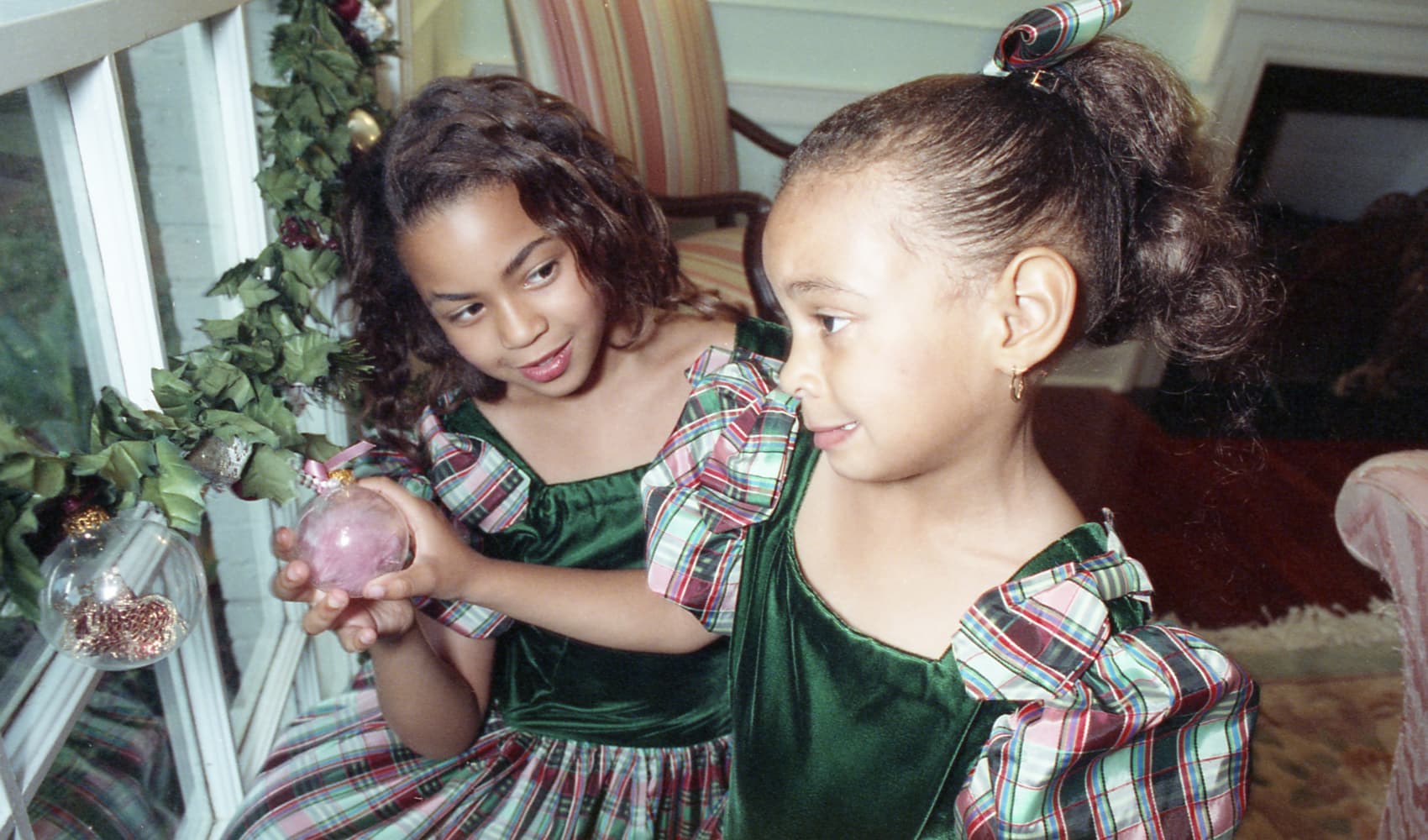"You're Okay": The Dangerous Parenting Phrase to Avoid
The Most Dangerous Phrase in Parenting? I Studied 200 Kids and Found Out
The Silent Saboteur of Emotional Health: Unmasking "You're Okay"
There are two words that slip out so easily when your child experiences an emotional event. Maybe they tripped and fell, scraped a knee, or had a fight with a friend. Their face crumples, tears well up, and before they’ve even had a chance to process the feeling, you say: “You’re okay.”
It sounds comforting, right? Reassuring, even. But it’s not. As a conscious parenting coach and advocate for children’s emotional health, I’ve studied over 200 kids — and I’ve seen this well-intentioned and overused phrase cause long-term damage in ways that most parents never realize. I see the patterns, the anxieties, the suppressed emotions bubbling to the surface years later.
In fact, because it seems so harmless at first, it’s arguably the most dangerous phrase in parenting. Why? Because it undermines the very foundation of emotional intelligence and resilience. Here’s why, and what to say instead:
1. It Teaches Kids to Doubt Their Own Emotions
When a child is visibly upset and hears “you’re okay,” it sends a confusing and invalidating message: What I’m feeling must not be real. My experience isn't valid. Over time, this disconnects them from their inner emotional world and makes them question their own perceptions. Think of it like telling someone who's shivering, "You're not cold!" It simply doesn't resonate with their lived experience.
The Disconnect: Feelings Aren't Facts, But They Are Real
We need to remember that feelings aren't facts, but they are very real *experiences*. Denying or minimizing those experiences teaches kids to distrust their internal compass.
Long-Term Impact: Emotional Avoidance and Insecurity
What happens when kids consistently doubt their emotions? They start avoiding them altogether. This can lead to anxiety, depression, and difficulty forming healthy relationships later in life. They learn to prioritize external validation over their own internal experience.
2. It Minimizes the Importance of Their Experiences
Think about it from a child's perspective. They've just fallen and scraped their knee. It hurts! Saying "you're okay" dismisses the physical pain *and* the emotional upset of the fall. It communicates that their experience isn't worthy of attention or validation. It suggests that their problem is trivial.
The Power of Validation: Acknowledging Their Reality
Instead of dismissing the experience, try validating it. Acknowledge their pain and upset. Say something like, "Ouch, that looks like it hurts!" or "I see you're feeling sad about that." This simple act of validation can make a world of difference.
A Parent's Role: Providing a Safe Space for Feelings
As parents, we need to create a safe space for our children to express their emotions without judgment. This means accepting *all* of their feelings, even the uncomfortable ones. Are we not the harbor for our child to come to and seek shelter? It's okay to feel however they feel.
3. It Prevents Emotional Growth and Resilience
Overcoming challenges, even small ones, builds resilience. When we rush to reassure our kids that they're okay, we're robbing them of the opportunity to learn coping skills and develop emotional intelligence. We are shielding them from discomfort, preventing growth.
The Learning Opportunity: Navigating Difficult Emotions
Each emotional experience, whether positive or negative, is a learning opportunity. By allowing our children to feel their feelings and work through them, we're teaching them valuable skills that will serve them throughout their lives.
Building Resilience: Bouncing Back from Setbacks
Resilience isn't about never experiencing negative emotions. It's about having the ability to bounce back from setbacks. It's about learning how to cope with difficult feelings in a healthy way.
4. It Can Be Perceived as Insincere
Kids are remarkably perceptive. They can often sense when we're not being genuine. If you say "you're okay" while rushing them to get ready for school or while distracted by your phone, it can come across as insincere and dismissive. The key is to be present and empathetic.
The Importance of Presence: Being Fully Engaged
Put down your phone, make eye contact, and truly listen to what your child is saying. Show them that you're fully present and that you care about their feelings.
The Power of Empathy: Stepping Into Their Shoes
Try to see the situation from your child's perspective. What are they feeling? What are they thinking? Empathy is about understanding and sharing the feelings of another person. It's not about fixing the problem; it's about connecting with their experience.
5. What to Say Instead: Alternatives to "You're Okay"
So, if "you're okay" is so damaging, what should you say instead? Here are a few alternatives that are more validating, empathetic, and supportive:
- "Ouch, that looks like it hurts!" (Acknowledges physical pain)
- "I see you're feeling sad/angry/frustrated." (Validates their emotions)
- "Tell me about what happened." (Encourages them to share their experience)
- "It's okay to feel [emotion]." (Normalizes their feelings)
- "I'm here for you." (Offers support and comfort)
- "What do you need right now?" (Empowers them to identify their needs)
- "Do you want a hug?" (Provides physical comfort)
Focus on Active Listening: The Key to Connection
The most important thing is to actively listen to your child and try to understand their perspective. Ask open-ended questions and resist the urge to offer advice or solutions right away. Sometimes, all they need is someone to listen.
The Long Game: Building a Strong Emotional Foundation
Conscious parenting is a long game. It's about building a strong emotional foundation for your child that will support them throughout their lives. It's about teaching them to understand, accept, and manage their emotions in a healthy way.
6. Beyond Words: The Impact of Nonverbal Communication
It's not just what you say, but how you say it. Your tone of voice, facial expressions, and body language all play a crucial role in how your child perceives your message. A genuine, concerned tone is always preferable to a dismissive, rushed one.
Mirroring and Validation: Show You Understand
Mirroring, subtly reflecting your child's emotions and body language, can show them that you understand and empathize with what they're feeling. Nodding, maintaining eye contact, and using a gentle tone of voice can create a sense of connection and validation.
Body Language Cues: Sending the Right Signals
Be mindful of your body language. Crossing your arms, looking away, or fidgeting can signal disinterest or impatience, even if your words are supportive. Open posture, a warm smile, and a gentle touch can convey empathy and reassurance.
7. Age Matters: Tailoring Your Approach
A toddler's needs are different from a teenager's. Adjust your approach based on your child's age and developmental stage. A toddler might need a hug and a distraction, while a teenager might need space to process their emotions alone.
Understanding Developmental Stages: Adapting Your Parenting
Researching child development can provide valuable insights into your child's emotional needs at different ages. Understanding their cognitive and emotional capabilities can help you tailor your parenting style to their specific stage of development.
Respecting Independence: Giving Space to Teens
As children grow older, they need more independence and autonomy. Avoid over-involvement and respect their need for privacy. Be available as a resource, but allow them to navigate their own emotional landscape.
8. Modeling Healthy Emotional Expression
Children learn by observing their parents. If you suppress your own emotions or react in unhealthy ways, your children are likely to do the same. Model healthy emotional expression by acknowledging your own feelings and coping with them in a constructive way. Show them how to process emotions healthily and how to express themselves in a vulnerable way. They need that modeling to grow into emotional maturity.
Self-Awareness: Understanding Your Own Emotions
The first step is to become aware of your own emotions. What triggers you? How do you typically react to stress or difficult situations? Understanding your own emotional patterns can help you break unhealthy cycles and model healthier behavior for your children.
Healthy Coping Mechanisms: Showing Them How It's Done
Demonstrate healthy coping mechanisms, such as exercise, mindfulness, or talking to a trusted friend or therapist. Let your children see you taking care of your own emotional well-being. Be transparent with your emotions. Let them know you are frustrated, sad, angry etc. so they can see those emotions aren't things to fear.
9. The Power of Apology: Owning Your Mistakes
We all make mistakes. If you accidentally say "you're okay" when your child is clearly not, apologize! Acknowledge that you didn't validate their feelings and try again. This teaches your child that it's okay to make mistakes and that it's important to take responsibility for your actions.
Building Trust: Showing Vulnerability
Apologizing to your child shows vulnerability and builds trust. It demonstrates that you value their feelings and that you're willing to learn and grow. Acknowledge them for their transparency with their emotions as well.
Repairing the Relationship: Mending the Connection
An apology can help repair the relationship after a misstep. It shows your child that you care about their feelings and that you're committed to creating a safe and supportive environment.
10. Seek Support: It Takes a Village
Parenting is challenging! Don't be afraid to seek support from other parents, family members, friends, or a therapist. Talking to others about your struggles can help you feel less alone and provide valuable insights and perspectives. It takes a village to raise a child, and there's no shame in asking for help.
Parenting Groups: Connecting with Others
Joining a parenting group can provide a sense of community and support. Sharing experiences with other parents can help you feel less isolated and offer new ideas and strategies.
Professional Guidance: When to Seek Help
If you're struggling with your child's emotional health or your own, consider seeking professional guidance from a therapist or counselor. A trained professional can provide support, tools, and strategies to help you navigate challenges and build a stronger emotional foundation for your family.
11. Cultural Considerations: Adapting to Your Context
Parenting practices vary across cultures. What's considered appropriate in one culture may not be in another. Be mindful of your own cultural background and the cultural context in which you're raising your children. Adapt your parenting style to align with your values and beliefs, while also respecting your child's individual needs.
Understanding Cultural Norms: Respecting Diversity
Research and learn about different cultural norms and parenting practices. Be open to adapting your approach based on your child's cultural identity and heritage.
Creating a Culturally Sensitive Environment: Celebrating Identity
Create a culturally sensitive environment that celebrates your child's identity and heritage. Expose them to different cultures and perspectives, and encourage them to explore their own cultural roots.
12. The Importance of Play: Emotional Expression Through Fun
Play is a powerful tool for emotional expression. Children often use play to process their feelings and work through difficult experiences. Encourage your children to engage in imaginative play and provide them with opportunities to express themselves creatively. This could include drawing, writing, dramatic play, etc.
Creative Outlets: Allowing Emotional Exploration
Provide your children with various creative outlets, such as art supplies, musical instruments, or costumes. Encourage them to use these tools to express their emotions and explore their inner world.
Unstructured Play: Fostering Imagination
Allow your children plenty of unstructured playtime, where they can use their imagination and create their own games and scenarios. This type of play fosters creativity, problem-solving skills, and emotional expression.
13. Screen Time and Emotional Regulation
Be mindful of the impact of screen time on your child's emotional regulation. Excessive screen time can lead to emotional dysregulation, anxiety, and depression. Set healthy boundaries around screen time and encourage other activities that promote emotional well-being.
Limiting Screen Time: Promoting Balance
Establish clear rules and guidelines for screen time. Encourage other activities, such as outdoor play, reading, or spending time with family and friends.
Mindful Screen Usage: Choosing Content Wisely
Be mindful of the content your children are consuming on screens. Choose age-appropriate and educational content that promotes positive values and healthy emotional development. Discuss what they are watching and engage in conversations about emotions.
14. Sleep and Nutrition: The Foundation of Well-being
Adequate sleep and proper nutrition are essential for emotional well-being. Make sure your children are getting enough sleep and eating a healthy diet. A lack of sleep or poor nutrition can lead to irritability, mood swings, and difficulty regulating emotions.
Prioritizing Sleep: Establishing Routines
Establish a consistent bedtime routine to promote healthy sleep habits. Create a calm and relaxing environment before bedtime and avoid screens for at least an hour before sleep.
Nutritious Meals: Fueling the Body and Mind
Provide your children with nutritious meals and snacks that are rich in fruits, vegetables, whole grains, and lean protein. Limit processed foods, sugary drinks, and unhealthy fats.
15. Celebrate Small Wins: Reinforcing Positive Behavior
Acknowledge and celebrate your child's small wins and efforts. Reinforce positive behavior and emotional regulation skills. This will help them build confidence and self-esteem, and encourage them to continue developing healthy emotional habits. It's not about perfection, but progress. Small steps in the right direction make a big difference.
Positive Reinforcement: Encouraging Growth
Use positive reinforcement techniques, such as praise, rewards, and affirmations, to encourage positive behavior. Focus on their efforts and progress, rather than just the outcome.
Building Self-Esteem: Fostering Confidence
Help your child build self-esteem by focusing on their strengths and talents. Encourage them to pursue their interests and celebrate their unique qualities. Let them know that you believe in them and that they are capable of achieving their goals.
Conclusion: Embracing Emotional Intelligence in Parenting
The phrase "you're okay" might seem harmless, but as we've seen, it can have a detrimental impact on a child's emotional development. By choosing more validating, empathetic, and supportive language, we can create a safe space for our children to explore their emotions, build resilience, and develop emotional intelligence. It's a journey, not a destination, and every step we take towards conscious parenting makes a difference. It's about being there for your child, validating their experiences, and helping them navigate the complex world of emotions. Remember, the goal isn't to eliminate negative emotions, but to teach children how to cope with them in a healthy way. Start small, be consistent, and embrace the journey of emotional intelligence in parenting.
Frequently Asked Questions
- Why is it so hard to stop saying "you're okay"?
It's often an automatic response ingrained from our own upbringing or a quick way to dismiss discomfort. Breaking this habit requires conscious effort and mindfulness.
- What if my child is overreacting? Should I still validate their feelings?
Yes! Validation doesn't mean condoning the behavior. It means acknowledging the *feeling* behind it. You can address the behavior separately after validating their emotions.
- My child is constantly upset about small things. Am I enabling them by validating their feelings?
No. Validation helps them feel heard and understood. It doesn't reinforce negative behavior. Instead, it can de-escalate the situation and allow for a more rational discussion.
- How do I handle it when my child's emotions are overwhelming *me*?
It's okay to take a break! Say something like, "I'm feeling overwhelmed right now. Let's take a few minutes to calm down and then talk about this." Prioritize your own emotional well-being so you can be present for your child.
- What if I don't know what my child is feeling?
Ask! "It looks like you're upset. Can you tell me what's going on?" If they can't articulate their feelings, offer suggestions: "Are you feeling sad? Frustrated? Angry?" This helps them connect with their emotions and learn to express them.





